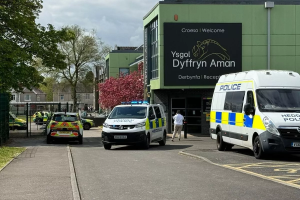STRIKES by members in Wales are on hold after further progress was made in talks with the Welsh Government, the CSP has announced.
The strikes, due to take place in all health boards on Tuesday, will be paused to allow further negotiations to take place between unions including the CSP and the government following the breakthrough today.
Other unions have taken the same decision and talks will continue through next week to finalise an offer that can be put to members in an online vote.
The new offer includes a further 3 per cent on top of the £1,400 given to all staff, 1.5 per cent of which would be consolidated.
The remainder of the pay offer would be non-consolidated and further discussions will be needed to determine how this overall amount of 1.5 per cent would be allocated across bands.
In addition, the revised package includes some other elements of terms and conditions on which negotiations will continue next week.
Health Minister Eluned Morgan has offered eight health unions an extra 3% on top of the £1,400 already promised.
The Royal College of Nursing (RCN), Chartered Society of Physiotherapy (CSP), Royal College of Midwives (RCM) and GMB union ambulance staff have put walkouts next week on hold. However strikes by other union members, including Unite, are still going ahead.
The Welsh Ambulance Service has said 20 military personnel will be drafted in to help drive ambulances during the upcoming Unite strike on 6 and 7 February. Chief executive of the ambulance service, Jason Killens, said: “We understand the reasons for strike action and thank the Welsh government for their commitment to finding a resolution which has got us this far.
“That said, with two days of action still planned by Unite, we would ask the public to think very carefully before calling 999 next week.”
A Welsh Government spokesperson said: “Following continued discussions over the last week, we are pleased to announce that an enhanced pay offer has been made to our health trade unions. On this basis, we are hopeful that the planned industrial action over Monday 6th and Tuesday 7th February will be postponed, allowing trade unions to discuss the proposals further with their members. Individual trade unions will confirm their intentions regarding next week’s action, prior to further talks with their members.
“This revised pay offer comprises an additional 3%, of which 1.5% is consolidated so will be in pay packets year-on-year, on top of the Pay Review Body recommendations, which have already been implemented in full. This offer will be backdated to April 2022. Included in this revised package are a number of non-pay commitments to enhance staff well-being, on which negotiations will continue next week.
“Whilst there is currently no improved pay offer on the table for NHS staff in England, it was also agreed that any resulting Barnett consequential following any improved offer to staff in England would result in a further pay offer to staff in Wales.
“We would like to thank those that have participated in the negotiations for their positive engagement and goodwill. We are awaiting a formal response from each of the individual trade unions.”
Unite represents about 25% of all ambulance staff in Wales and said members would still strike on Monday, unless a better deal is agreed over the weekend.
“It would be wholly premature for Unite to talk about any deals being done in relation to the Welsh ambulance dispute,” said general secretary Sharon Graham.
“Negotiations are continuing. Unite will be available all weekend in the hope that a satisfactory offer can be put together to avert strikes next week.”
Thousands of ambulance workers have been holding walkouts since December, with GMB members only responding to life-threatening calls. Staff staged two strikes in January as part of their calls for better pay, above inflation. It put increasing pressure on the Welsh government as strikes left the service “seriously disrupted”.


















